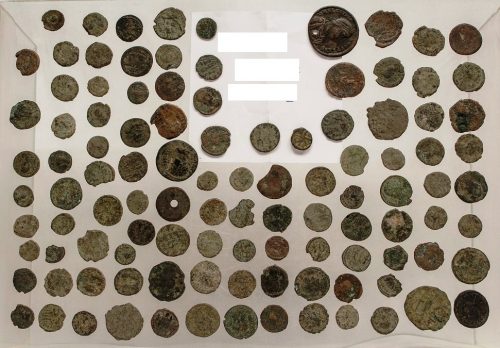
Over 18,000 cultural goods including archaeological items, furniture, coins, paintings, musical instruments and sculptures have been seized by Customs and other law enforcement authorities from 29 countries, coordinated by the Spanish Civil Guard (Guardia Civil) and supported by Europol, INTERPOL and the World Customs Organization (WCO) traffickers.
During the operation code named Operation Pandora III, objects that may facilitate the trafficking of cultural goods, such as metal detectors, were also seized with 59 individuals arrested.
The majority of the objects seized during the operation were from European countries; however, more than 30 objects originated in countries outside Europe such as Colombia, Egypt, Iraq and Morocco.
During Operation Pandora III, law enforcement authorities assigned thousands of police and Customs officers to focus on online market and key hot spots, with the aim of disrupting the activities of criminal groups involved in this form of trafficking.
According to WCO, ‘’Fighting the illicit trafficking of cultural goods online is a key challenge. Criminal groups take advantage of digital platforms such as websites, social media and instant messaging apps to sell cultural artefacts of unlawful provenance.
‘’Within the framework of Operation Pandora III, a cyber patrol week was organized by Dutch Police (Politie) as part of a multi-disciplinary law enforcement initiative: 26 experts from 21 countries, Europol, INTERPOL and WCO mapped active targets and developed intelligence packages. A total of 169 suspicious websites were targeted, resulting in the seizure of 682 objects.
‘’Given the transnational dimension of this crime, Europol, INTERPOL and WCO established 24/7 operational coordination units to support information sharing as well as to disseminate alerts and warnings and perform cross-checks in different international and national databases. Europol (within the framework of EMPACT), played a key role in implementing the entire operation by facilitating information exchange, and providing analytical and operational support (a mobile office was set up for the cyber-patrol activity). Officers made full use of INTERPOL’s Stolen Works of Art database, with several hundred searches performed during the operation. Experts from Europol, INTERPOL and WCO were also deployed to provide analytical on-the-spot support over the course of the cyber patrol week.’’
